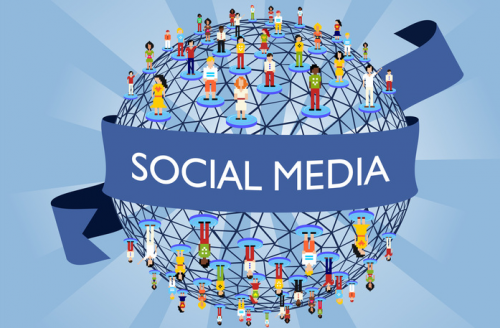Introduction
Digital marketing has changed at a dizzying rate in today’s hyperconnected society. Companies don’t just compete on the quality of their goods or services anymore. They also compete on how visible they are, how engaged their customers are, and how well they can connect with their customers. Social media marketing often known as social marketing has become a key part of digital growth. Social media sites are a more immediate and dynamic way to reach influence and keep customers than traditional marketing channels.
Expanding Reach and Brand Awareness
Social media is not simply a way to promote it is a place to show off. Businesses may reach audiences who were formerly impossible to reach with traditional advertising on sites like Instagram, Facebook, LinkedIn and TikTok. If you put a lot of thought into it, one post may reach thousands of people in only a few minutes. Organic content has the ability to go viral beyond paid efforts, expanding brand exposure in ways that no TV ad or billboard could. Businesses that spend time making content that people want to share and that people want to read may reach a lot of people without spending a lot on ads. Social Media Agency Stockport helps businesses grow their online presence effectively.
Direct Engagement with the Audience
Direct audience engagement is a key strength of social marketing. Social media allows discourse, unlike marketing. Brands may humanise by responding to comments, concerns, and interactions. Direct involvement develops brand trust and community. When they feel heard and respected followers are more loyal and promote the company in their networks.
Targeted Advertising and Cost Efficiency
Another reason social marketing helps businesses develop is because it is accurate. Businesses may utilise platforms to find individuals based on their age, geography, hobbies, and prior behaviour. With traditional advertising, the message is sent out to a lot of people and the aim is that it reaches the correct people. With social marketing, the message is sent to the people who are most likely to respond. This makes it very cheap. Even small companies with limited funds may conduct ads that achieve results making the playing field more even with bigger rivals.
Data-Driven Insights and Analytics
Each social media encounter has a story. Every like, share, remark, or click tells businesses what works and what doesn’t. Analytics tools provide audience preferences, peak activity, and interaction trends. This data driven strategy lets marketers change ads in real time test new methods and make decisions based on facts. Social marketing involves learning, adjusting and improving not simply providing material.
Enhancing Customer Experience
Customer experience also revolves around social media. Quick responses, meaningful material, and behind-the-scenes peeks enhance the experience. Supported and informed followers are more loyal. Sharing ideas, lessons, or humour deepens the brand and makes encounters memorable. Strong social presence guarantees that buyers interact with the brand story as well as the product, encouraging repeat business.
Driving Website Traffic and Conversions
The ultimate aim of every marketing campaign is to get real business outcomes, and social marketing is the best at this. Social media sites provide several ways to turn visitors into customers, from generating leads to making transactions. Shoppable posts, integrated forms, and easy checkout interfaces have changed social media from a way to promote products to a way to sell them directly. Retargeting efforts also help companies go out to people who were interested but did not buy anything which makes it more likely that they will.
Building Long-Term Relationships and Customer Loyalty
Social marketing builds client commitment beyond growth metrics. Through constant involvement, good information, and responsive interactions, companies can build communities beyond transactions. Repeat consumers and brand ambassadors share experiences and promote the company naturally.
Adapting to Trends and Emerging Platforms
New platforms, services and content offer novel user engagement. Early experimentation with these trends may attract notice develop audiences and set brands apart. Social marketing helps you pivot rapidly and seize new digital possibilities.
Conclusion
In conclusion, social marketing is no more an optional part of a digital strategy; it is a key part of growth. It is one of the best tools for organisations that want to do well in a digital-first environment since it can combine accurate targeting, interactive engagement, brand amplification, and provable ROI. Companies may open up big chances for exposure, conversion, and long-term success by learning how it affects many areas and putting money into both organic and paid efforts in a smart way. It is not enough to merely keep up with trends in social marketing. You also need to establish a strong, flexible and growth oriented digital presence that will keep your brand relevant in a market that is always changing.
Read More : Empowering Your Finances: A Guide to Smart Money Management









